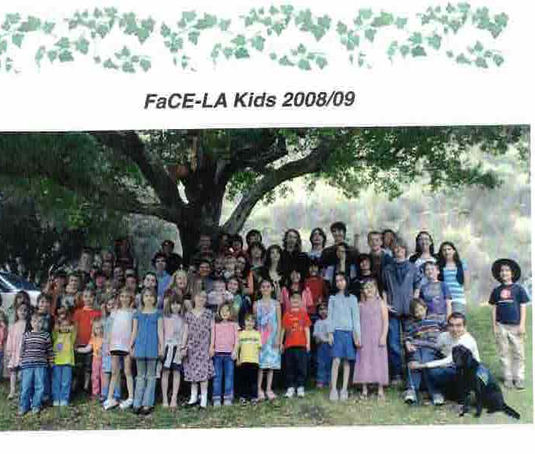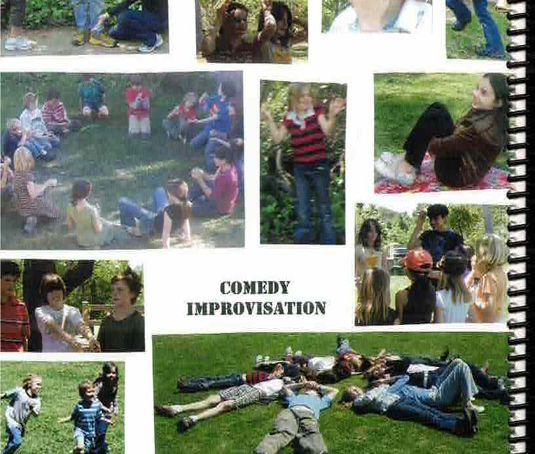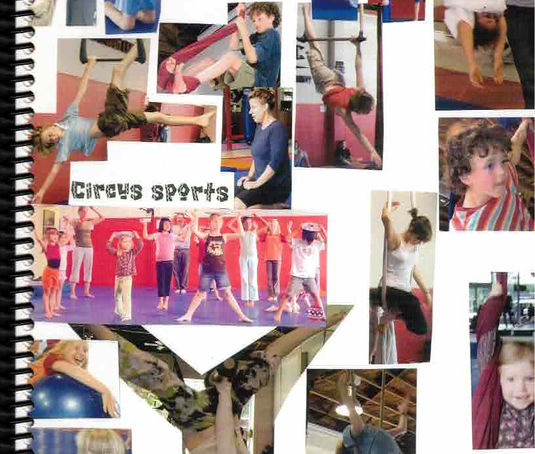This project was my senior capstone for Loyola Marymount University, it consists of two parts: A podcast series made up of four episodes in which I interview former homeschoolers about their childhood, and a written piece exploring the differences between remote learning and homeschooling.

I Know What Homeschooling Looks Like, And it’s Not Remote Learning
“Shouldn’t you be in school?” Are the five words that echo in my head when I think back on my childhood. I’d hear those words everywhere, at the West Hollywood Barnes & Noble on a Tuesday morning in line to get my Percy Jackson poster signed, at the Natural History Museum with my American Sign Language class of five attempting to fingerspell the names of fossils, at Universal Studios Hollywood while repeatedly riding Jurassic Park as part of my role on the Canadian television show, “The Shopping Bags.” Those five words, laden with concern, were inescapable. “Shouldn’t you be in school?” These fully grown, complete strangers would ask. And I’d always think to myself, what an odd thing to consider your business, or, can’t you see we’re in the middle of our improv class at this public park?
However, after choosing to attend high school, and then college, I can see how my friends and I might have stood out. Perhaps it was understandable that these people would want clarity as to why there was a whole army of us, barefoot, crowding into one very sweaty Amtrak train car on a Thursday morning in Autumn. In retrospect, from an outsider’s point of view, it could have appeared a legally shady situation. But I can assure you, as my parents repeatedly assured my vaguely concerned extended family, that under California law my childhood checked all the education boxes required, and though 20-30 teenagers barefoot on a train smelled like a recipe for disaster, legally we required neither shoes nor so-called formal schooling.
The California education code never once uses the term homeschooling, but thanks to a combination of loopholes, homeschooling has become a widely accessible option. There are a multitude of ways to meet the education requirements implemented by the state government, but the two most commonly utilized methods are creating your own private school, or enrolling your child in a satellite program through a charter school.
My own parents went with option 1, filing for our family to become a full-blown private school: Live and Learn Academy. The rules at this particular academy were pretty lax, but with my mom as principal and my dad as vice principal, attendance was (mostly) mandatory. Of course attending school for us as unschoolers just meant a whole lot of unstructured, ambiguous learning time. Where homeschoolers often do have some set curriculum to follow, unschooling parents are of the belief that a child’s interests should guide their education. My brother invested himself in magic from a young age, becoming, at the time, the youngest junior member at the Magic Castle. I jumped around from hobby to hobby, taking classes in circus skills and joining a dance troupe, reading anything I could get my hands on above my prescribed reading level in my spare time. We were lucky enough to have season passes to one of the many theme parks in Southern California most years, so Live and Learn Academy would often take field trips to Disneyland on a weekday morning, meaning the park was relatively empty. No one ever came knocking to demand proof of our academic development, but after I decided to transfer from Live and Learn to an actual high school, my above-average grades provided all the validation my parents needed.
But I wasn’t allowed to start off in honors classes right away, I had no proof from middle school to verify my reading or math levels. For those that might want or need academic records, according to A2Z Homeschooling, there are 9 satellite charter school programs just within LA County. Satellite programs offer families more structure, having kids meet monthly with an education specialist to go over work samples. Essentially, families prove that they’re creating some level of “school-at-home,” the more traditional perception of what homeschooling is, with textbooks out at the kitchen table. In exchange for this, these satellite programs give families “educational funding,” which can usually be spent on learning materials and services from a long list of pre-approved vendors. I knew families who spent it on art supplies and science experiment kits. One family was able to buy an iPad—for educational purposes, of course. Lauren Davies, a 21-year-old former student of one of these programs, appreciated her charter school for more than just the funding of her interests.
“I kind of thrive on meeting deadlines or standards and being judged in certain ways,” Davies explained.
All these loopholes have led to a massive homeschool community across Los Angeles. On meetup.com, there are 39 active homeschool groups listed in the county, from South Bay to my very own FaCE-LA.
FaCE-LA is a group I’ve found difficult to describe, and I’m not alone. Former member Kaelyn Arellano described it as, “The birth-place of all homeschoolers in Los Angeles.” While Davies summed it up simply as, “Friends at the park.” One of the former unofficial-leaders of FaCE-LA, Maggie Baird, had an anecdotal definition somewhere in between.
“I don't really remember too much about the beginning except going and gradually meeting people,” she said. Baird described a scene vividly familiar to me, with non-hostile cliques of parents naturally forming and the “old timers,” their own children teetering on the edge of young adulthood, huddled in a circle off to the side. It took Baird and I both a bit of time before understanding it wasn’t a circle of hostility, but of pure habit.
“You make friends with the people with kids your age, [and] your kids naturally make friends.” Baird said.
Making friends has never been an issue for Baird, who quickly became popular within the group: the designated cake baker for homeschool functions, the assistant teacher of the rock climbing and circus classes, leader of the biweekly book club meetings. Baird admits being hyper involved is simply in her nature, and was apparent even before her and her husband, Patrick O’Connell, officially decided to homeschool.
“[My son] went to [Rose Scharlin] Co-operative nursery school, and he really barely liked being there,” Baird said. “I found myself super involved, you know—like super, super involved. And he really just kinda liked digging in the dirt and having lunch.” She realized that if she was going to be an involved parent, she wanted to focus on what her children wanted.
“That was kind of the final decision about homeschooling. If I'm going to work this hard anyway, I might as well homeschool.”
But the decision to homeschool wasn’t one her family had anticipated making. Baird, whose father was a public school teacher, attended public school herself and had always assumed that her children would do the same. After becoming a mother at the age of 38, her feelings changed.
“I just really wanted to be a mom,” she said. “I dreaded from the minute Finneas was born… the day he would go off to school. Then Columbine happened and I'm from Colorado, so that really affected me.”
And just like that, the Baird-O’Connell family was immersed in the homeschool community, with Baird becoming a sort of supermom not just to her son and daughter, but to the entirety of FaCE-LA. She recalled her leadership in the community being motivated by two things: creating spaces and opportunities she knew her own children would enjoy, and finances. If she was the one teaching the classes, not only could she customize it to her kids, but they could usually take it for free.
“Now there's all these resource centers, those cost a lot of money,” she explained. “We were creating all that ourselves.”
One of the biggest misnomers of homeschooling that she wanted to dispel was its inaccessibility. Baird remembers bartering for many of her children’s activities when they were growing up. She volunteered with the Los Angeles Children’s Chorus, and cooked meals in exchange for the kids’ private singing lessons. Her husband did handyman work around her daughter’s gymnastics center. They were part of learning groups such as WISH, a low-cost co-op center where parents volunteer to teach classes.
“There's a kind of a myth [about] homeschooling that it's expensive, that you have to be rich,” Baird said. “It just depends on how you choose to live your life.”
She also made a point to emphasize how diverse in mindset and method the homeschooling community is. FaCE-LA in the years of her involvement was a mashup of by-the-textbook schooling-at-home families, unschoolers who spent their days at museums or theme parks with no academic measurements, and families who fell somewhere in between. Where one fell in that range was a matter of personal opinions and beliefs on what an education should be.
“My whole philosophy was, ‘Why do we put so much pressure on kids to grow up and be superstars or whatever? isn't it okay just to be a happy, healthy person and feel validated in your life and do something you love?’” Baird said.
But sometimes kids can be happy, healthy, and superstars. Baird’s children, Finneas and Billie O’Connell, are better known as the collective 9-time Grammy winners Billie Eilish and FINNEAS.
“[Their fame] wasn't any kind of goal. It was really just like, let's help them do the things they love to do and that will make you a happy person because you're doing something you love,” Baird explained. “I think more than what my kids have maybe achieved, is just that they're really good people.”
It’s been many years since the Baird-O’Connell family has been involved in the homeschool community, and Baird, who expressed gratitude that her kids grew up in the era of homeschooling that they did, believes the community overall has drastically changed.
“There is such a tendency now to kind of somewhat recreate school in different ways,” said Baird. “I feel like [my kids' generation] was just kind of an ideal time in LA with so many people interested in doing it and super involved. It wasn't like, ‘I'm going to drop my kid off at your homeschool resource center.’” But despite the alternative educational landscape looking so unfamiliar to her these days, Baird considers it a positive that the community continues to transform.
“It is so different, which I think is kind of an important thing [about] homeschooling and unschooling,” Baird said. “It is always evolving and there's no way to generalize.”
Elmarie Hyman, the founder of Learn Beyond the Book, a homeschool resource center with locations in the Santa Clarita, San Fernando, and Antelope Valleys, feels that centers like hers are a good medium between public schooling and the often unstructured nature of unschooling. With a wide selection of courses that range from algebra to Lego class, families can enroll their students full time or pick ala carte from their childrens’ interests. Most families pay for their enrollment with satellite charter school educational funds.
To me, as someone who grew up in the community prior to the homeschool resource center boom, places like Hyman’s perplex me. I was 13 when the first of its kind in our community opened. I enrolled in a self-defense class, there were maybe five or six of us total, and because homeschoolers are notorious for renting the weirdest spaces, it took place inside a desolate brick building in Elysian Valley. I recall practicing my palm heel strike in our DIY-dojo and thinking, this’ll never last…
But it did last. Homeschool resource centers have really become a thing. The kids a few generations below me are now well-versed in this resource center routine, further reinforcement of Baird’s words, there truly is no way to generalize the ever-evolving community. Despite the school-esque nature of resource centers such as Learn Beyond the Book, Hyman feels her center offers families the option of a structured education with homeschool philosophies.
“We have much more freedom to pursue the things that the kids are interested in, and the teachers are people that are passionate about their specific topic that they're teaching,” Hyman said. “I always hear the poor teachers that are [teaching] second grade, they have to teach every single subject and they usually hate something.... And that's really sad to me. I want someone to inspire the kids rather than making them hate something.”
Learn Beyond the Book started as a simple co-op like the ones Baird championed. Hyman found herself hosting and organizing these educational gatherings, and soon families were offering to pay her with their charter school financial allotments. But the exchange of money changed things.
“[By law] you can't have that at your house,” Hyman explained. “So it started off sort of small and just a few teachers that were all my friends, just growing out of the co-op, and then eventually [it] took on a life of its own.”
The center now has an estimated 500 students enrolled across three locations and employs around 40 teachers and tutors each semester. Their local meet-up group, which is open to all homeschoolers and requires no enrollment fees, currently has over 900 families.
Although Learn Beyond the Book and the many other homeschool resource centers in Los Angeles were forced to move online due to the pandemic, Hyman expressed her sympathy and concern for children and parents involved in the public school system during this time.
“It seems like there isn't any consistency across the board. They have a curriculum that they have to finish and whether the kid knows everything already or not, they still have to do all the work, which is typical in a classroom,” Said Hyman. “But now it's the parents having to do that and they don't like it.”
Though there is a lack of national data, Hyman feels that remote learning will drive many new families into the homeschooling world. NPR reported that LAUSD is down in enrollment by 11,000 students this year, and in states like Vermont, where families must apply to “home-study” each year, applications to homeschool rose by 75% this year according to data from the state’s Agency of Education. Hyman suspects the longer learning is remote, the larger the wave of incoming homeschoolers will be in the coming years.
The commonality between the two educational avenues is clear though, (or as clear as one’s wifi allows it to be). Both LAUSD and Learn Beyond the Book are conducting their curriculum on Zoom. Hyman admitted enrollment has dropped significantly since shifting to remote classes, with students who used to enroll in seven or eight courses now taking just two or three.
“Zoom is better than nothing, but it's not their favorite thing,” She said. Though her main concern is not with enrollment numbers, but with the state of her students’ social lives. A large focus of Learn Beyond the Book is building a sense of community, and Hyman fears that, especially among her younger students, that is something that is a challenge to shift online.
But beyond the shared struggles of Zoom, Hyman feels it is imperative to clear up the confusion that public school families whose children were sent home in March magically became homeschooling families. She penned a blog post about this exact issue shortly after moving learn Beyond the Book online.
“COVID-19 has changed all of our lives, even the homeschoolers, believe it or not, because, unlike what the word might sound like, we, as a general rule, are rarely home. We are out socializing at park days, group classes, field trips to interesting places, or just hanging out with friends.” Hyman wrote. She explained that the motivation behind the post came from the same place as the motivation behind this entire article.
“I was pained by the fact that people were calling it homeschooling because I felt like the stereotype that they have of homeschooling is now going to be even further emphasized in their heads because they are going to think, ‘Oh yeah. So now we're all sitting on Zoom doing our school instead of at the kitchen table with a bunch of books.’” Hyman said. “The homeschool Facebook groups were flooded with people that were asking about homeschooling and saying, ‘Oh, we're homeschooling now.’ And everybody kept saying, ‘You're not, you're not! Don't think of it that way. You're doing something totally different!’
By Danica Creahan




